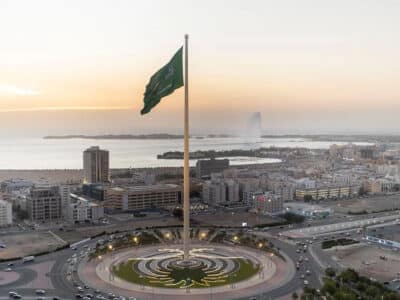Lebanese expatriates in the United Arab Emirates (UAE) are experiencing a complex mix of emotions – fear for their loved ones back home, frustration with media coverage, and a pervasive sense of “survivor’s guilt” as they watch events unfold from afar.
The situation in Lebanon has deteriorated rapidly, with recent Israeli air strikes intensifying in Beirut’s southern suburbs. Over the weekend, heavy bombardments caused widespread panic, forcing many residents into the streets and makeshift shelters. As of Wednesday, the death toll in Lebanon reportedly surpassed 1,800, with over 9,000 injured.
For Lebanese expats in the UAE, the distance from their homeland does little to ease their anxiety. Mabelle El Koreh, 31, who has lived in Dubai for four years, expressed her deep concern.
Lebanon flight suspensions
“I’m worried about a lot of things. I know that a lot of scenarios can happen. I’m worried about an Israeli occupation which is something that we don’t want. I’m worried that Lebanon is going to be the second Gaza,” she told Arabian Business.
El Koreh’s family is currently safe in their summer house in the mountains, but she knows others aren’t as fortunate. “I know a lot of people that are trying to get out of Lebanon but they cannot find flights,” she said.
The difficulty in securing flights out of Lebanon is a common thread among expats. Carine El Natour, 26, also based in Dubai, shared her struggles.
“I have been trying to assist my cousin in fleeing to Turkey however the lack of flight availability has been a struggle. There are waiting lists for flights which are supposed to open up on October 7 and we are desperately trying to secure a spot on one of them,” El Natour told Arabian Business.
Aya Maria Melki, a PR manager who has been in the UAE for 4 years, faces similar challenges. “My mum is reluctant to leave Lebanon and abandon our homes, one in Beirut and one in the mountains. After weeks of pleading with her, she has finally agreed to leave, but the situation with flights is chaotic, and there are no available departures until mid-October,” Melki shared.

Families face evacuation challenges
Many expats are grappling with feelings of helplessness and guilt. El Natour admitted, “Every day I try and go on with my routine is riddled with extreme guilt and a feeling of helplessness.”
Melki can relate to this “survivor’s guilt.” “While I’m here in a safe and secure country, enjoying the comfort of my home, my family and friends in Lebanon are living through unimaginable fear and uncertainty. It’s difficult to reconcile the fact that I’m safe while they face daily threats to their lives and homes.”
Tuesday night’s Iranian attack on Israel has only heightened fears of further escalation. El Koreh expressed her shock and worry. “I feel like [Iran’s attack on Israel] is going to make things escalate.”
Melki is also deeply concerned about the potential for the situation to worsen. “What worries me most is the potential for escalation and the overwhelming uncertainty we’re currently facing. My greatest fear is that we could lose our lands and homes, that they may no longer be ours if the situation deteriorates further.”
According to the Lebanese Disaster Management Unit, 31,700 families have been displaced, with 160,200 people now internally displaced and only 192 of the country’s 867 shelters still having availability.
Survivor’s guilt support groups
As the situation continues to evolve, Lebanese expats in the UAE are left to watch and wait, their daily lives in stark contrast to the reality faced by their families and friends back home. Many are turning to support groups, both online and in-person, to cope with the emotional toll.
El Koreh mentioned attending a support group at the Valens Clinic in Dubai, finding it “really nice.”
Melki, while not having attended any groups yet, believes “there needs to be more awareness around these support groups because many Lebanese expats are in need of guidance on how to cope with this tragedy.”
Frustrations with media coverage of the conflict are also prevalent among Lebanese expatriates. Melki criticised international media outlets for “downplaying or outright ignoring the true gravity of the situation,” leaving many “unaware of the real dangers we’re facing.”
El Natour echoed this, saying the media coverage has been “infuriating” and accusing foreign press of “dehumanising” Lebanese people while “puppeteering the narrative to control the masses into blindly hailing Israel as the ‘good side.'”








